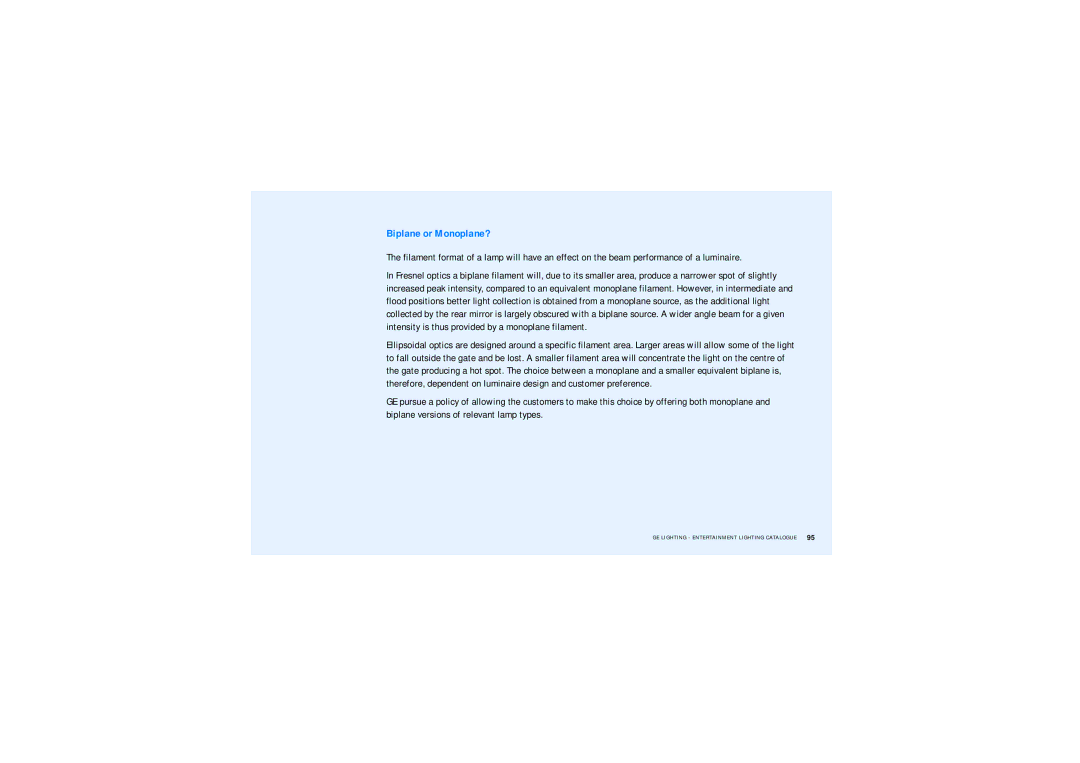
Biplane or Monoplane?
The filament format of a lamp will have an effect on the beam performance of a luminaire.
In Fresnel optics a biplane filament will, due to its smaller area, produce a narrower spot of slightly increased peak intensity, compared to an equivalent monoplane filament. However, in intermediate and flood positions better light collection is obtained from a monoplane source, as the additional light collected by the rear mirror is largely obscured with a biplane source. A wider angle beam for a given intensity is thus provided by a monoplane filament.
Ellipsoidal optics are designed around a specific filament area. Larger areas will allow some of the light to fall outside the gate and be lost. A smaller filament area will concentrate the light on the centre of the gate producing a hot spot. The choice between a monoplane and a smaller equivalent biplane is, therefore, dependent on luminaire design and customer preference.
GE pursue a policy of allowing the customers to make this choice by offering both monoplane and biplane versions of relevant lamp types.
GE LIGHTING - ENTERTAINMENT LIGHTING CATALOGUE | 95 |
